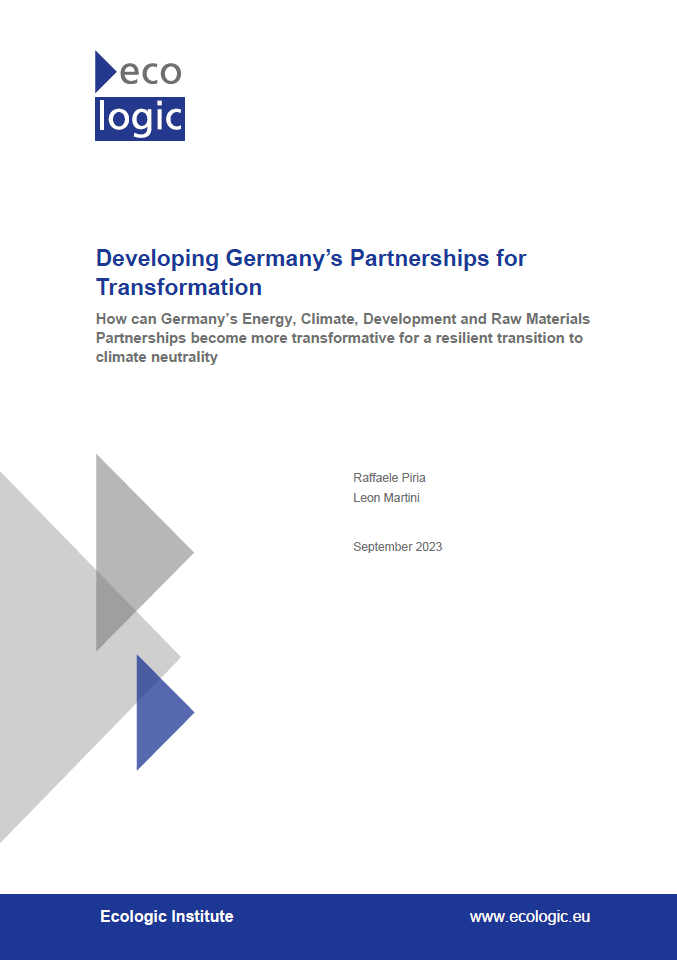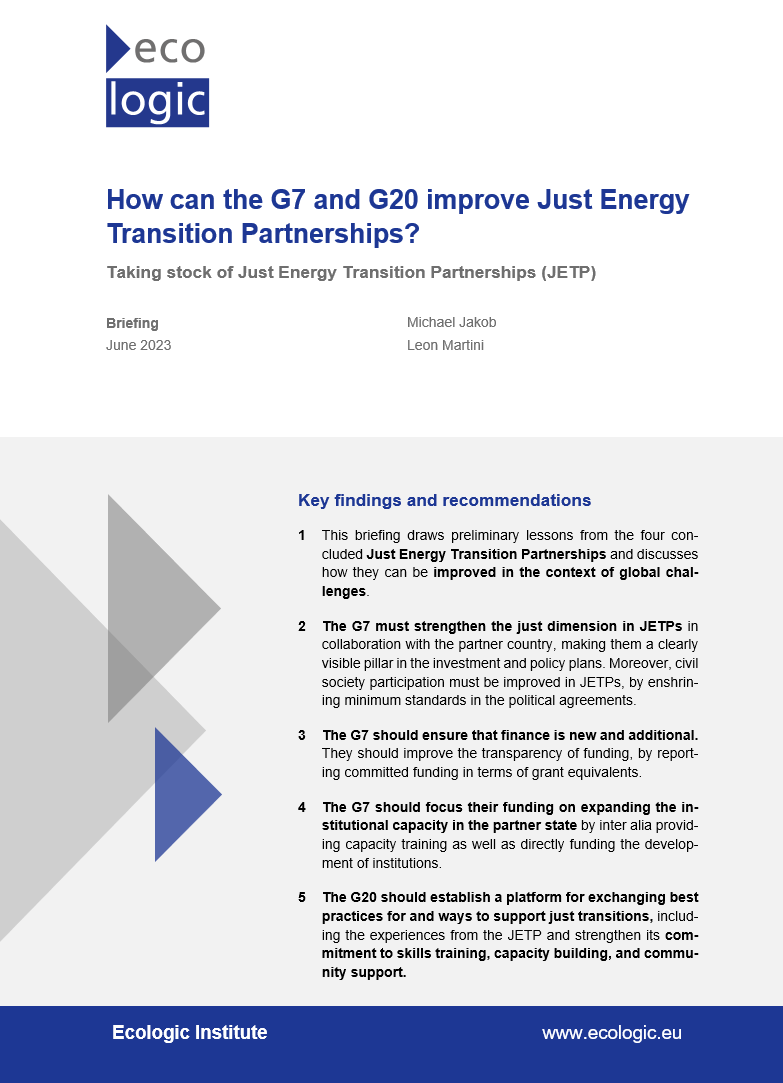Developing Germany's Partnerships for Transformation
- Publication
- Citation
Piria, Raffaele and Leon Martini (2023): Developing Germany’s Partnerships for Transformation. How can Germany’s Energy, Climate, Development and Raw Materials Partnerships become more transformative for a resilient transition to climate neutrality. Ecologic Institute, Berlin
Against the backdrop of an accelerating climate crisis and the need for transformative change to limit global warming to the targets agreed upon in the Paris Agreement, bilateral and plurilateral partnerships have emerged as a promising instrument for international climate policy.
This report provides an independent, systematic analysis of the structures, activities, and impacts of Germany’s Energy, Climate, Development, and Raw Materials Partnerships (ECDRPs). A particular focus lies on the partnerships with countries of the Global South. Based on the analysis, the report provides recommendations for the development of Germany’s partnerships by answering the central question: How can Germany's ECDRPs be made as impactful as possible and more transformative for a resilient transition towards climate neutrality in Germany and its partner countries?
The report draws on an extensive stakeholder and expert consultation and interviews to provide a detailed descriptive analysis of Germany’s partnership programmes. It reviews the history and international context of the partnerships programmes and provides an analysis of Germany’s five main partnership programmes: Energy Partnerships, Climate and Development Partnerships (P+), Just Energy Transition Partnerships, the International Climate Initiative, and Raw Material Partnerships. Based on an identification of the strengths, weaknesses, and gaps in Germany’s partnership landscapes, it develops recommendations for policymakers to make its partnerships more effective and transformative for the transition to climate neutrality.





